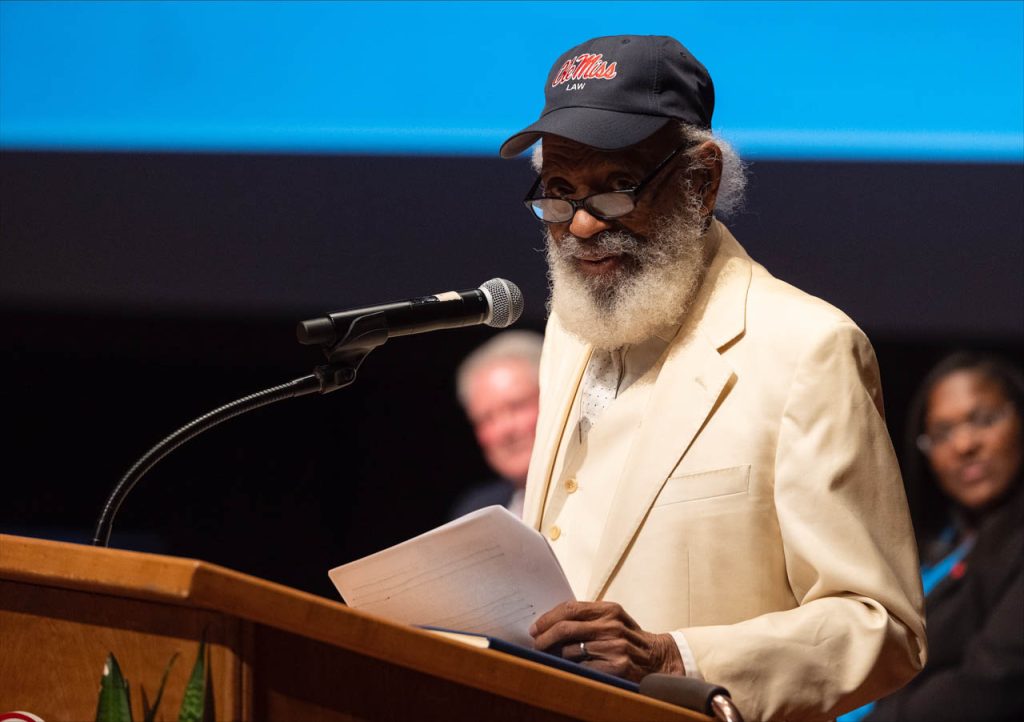EDITOR’S NOTE: Why college is a monthly column that explores the layered decision of pursuing higher education. It explains the dynamics that divide the conversation in many communities. In this installment, Opinion Editor Justice Rose interviews senior marketing major Palace Roby.
Fundamentally, there may be something wrong with how we progress through school. Thirteen consecutive years dedicated to foundational education. Years concurrent with essential human development. The brain develops exponentially, we multiply in physical size and gain social intelligence (in large part thanks to a school setting). Despite this undeniable maturation, we are still taught the same way. We come into the classroom, sit at our desks, be quiet and wait to be taught. The same eight hours are allotted daily for learning from the ages 5 to 18. In what world should a five-year-old and 18-year-old be under the same structure?
Education at a young age is especially vital, don’t get me wrong. When we are young children we learn faster than ever. Our curiosity is peaking at that age. Elementary school quality can make or break a child’s educational track. In my own experience, I always loved school. Even after I hit that inevitable wall.
The wall?
The wall is an intersection between school and development. A new consciousness, perhaps. An age where we better understand the idea and purpose of school, and in some cases become uninterested in its efforts.
Plainly said, kids become tired of school. Off my purely anecdotal assumptions, this occurs around ages 13-14 and grades 7-8. Right before we enter high school, the homestretch. The part of K-12 where we make it all count. See something wrong?
Of course, things are like this for a reason.
Public schools are tax-funded and federally regulated, so it’s costly to implement creative changes in the way we teach. That controversial structure in place lessens the role of the teacher from enforcer and educator to mainly educator. Teachers have it hard enough day to day. It’s a taxing job on the mind, and it has gone unappreciated for decades. In more recent years, society has done a better job of praising our educators. It’s still not enough, though.
Teachers mold us as we become accustomed to a system of learning. A good teacher can make us fall in love with learning. Good teachers will mask institutionalism, which becomes debatable whether or not it’s a good thing, but it is undeniably helpful in keeping us focused at a young age.
All of this to say it’s understandable how kids become burned out with school at a young age. To some high school graduates, expecting college attendance seems unreasonable; it makes sense. Depending on pursuits and resources, those 13 consecutive years in school can turn into 20-plus.
It’d be misleading to present all of these reasons as chief deterrents from higher education. Without a doubt, environment plays the lead role in determining whether a student wants to attend college. Environment includes, but is not limited to, friends, culture, parents’ opinion and education, attitude, financial status, race and socioeconomic dynamics.
Enter: Palace Roby
Palace Roby is a senior marketing major from Nettleton, Miss. In our conversation, I looked to understand why she chose college and what she has gained from the degree pursuit.
Nettleton is your everyday small-town Mississippi city. Not much going on, close in proximity to Tupelo, a few restaurants, no establishments too large. It is the type of town where people finish school and stick around. I graduated ranked 10 in a class of 100 to give some insight. It’s a majority white city and that was reflected in our student body. Even then, my class had the most Black graduates in a long time.
Out of that class of 100, about half of us pursued a degree and only about four or five of us were at a four-year university. It’s a financial thing. Going to school is ridiculously expensive, and the main reason I was able to attend a four-year was because of scholarships.
I get that a university is still a business, but I’m not sure that justifies the absurd asking price. There is something exploitative about the cost of attendance. The cost alienates many people, minorities especially. College just isn’t affordable.
I knew I wanted to come to Ole Miss since middle school. Ole Miss was the big school, the one everybody knew about. It was the college experience: new faces, new opportunities. I would come here for camps over the summer, anything I could get my hands on, really. I would find any reason to come to visit my future home.
I think my eagerness to get here was a little different from others. I wasn’t chasing the freedom you hear talked about a lot. I always kind of did my own thing back at home. Not to say my mom didn’t care, but I was responsible. The experience I sought was one of growth and trying new things.
I chose to be a marketing major because it’s something I could see myself enjoying. I mean, we market ourselves every day using social media. I thought marketing was something I could learn about and capitalize upon.
In my four years here, I got the experience I wanted. There are so many invaluable things that come with attending a university. I found my friends for life. These are friends that I became myself with. We watched each other grow up from naive teenagers to educated young ladies. With graduation around the corner, it makes me excited to see where we are going to end up in life. Even though there are uncertainties with this new chapter in life, it’s something I look forward to. I joined Alpha Kappa Alpha Sorority, Inc. during spring 2021. The organization helped me find a commitment to service, network, lead, build character and celebrate my sisterhood. It has been a blessing. I’m glad I had the last normal freshman year pre-covid, and getting sent home was difficult. The educated status is something I don’t take for granted, either.
The decision to come to college is layered, and I think it depends a lot on what you know and what you come from. In my personal experience, my mom graduated from college. My dad didn’t attend college, but he has been in the military his entire life. I never thought about taking a different route. A gap year was never an option, you know? The faculty and staff members in your school district are players on the board, too.
I had compiled all these stats and achievements in high school. It was only right to make it count towards something.
That’s where a divide really shows, though. The effort and work I put in was the difference between me being drowned in debt and coming here on full scholarship funding. High school students just aren’t focused to that extent. Even though I had my own plan and dreams, it was asking a lot of me at the time to go and find my own scholarships. That’s the difference recruitment can make. That’s what they should focus on. I don’t think the letters and packets, things of that nature really intrigued me. I didn’t apply to many schools anyway. I knew I wanted to come to Ole Miss. I just had to figure out financing it. Through word of mouth and counselor advising, I found one of my biggest scholarships.
Mentorship roles could move the needle on college attendance among any group. A big sister or big brother role that keeps you grounded and shows you what is possible in your own life.
I can’t make the decision to go to college for anybody. That’s up to them. Today, many degree markets are oversaturated. That means it is becoming hard to find a job in certain disciplines. The value of the bachelor’s degree has decreased. It’s ironic that college prices are higher than ever but the job market is more of the same. The security that came with a degree is not the same anymore.
It probably all boils down to the selected career path. I know for a fact many engineering and tech degrees have no issue finding work right out of college. The same can’t be said for a business major. I’ve made the decision not to attend graduate school. It’s going to take time for me to move up in pay and merit. That’s something I can live with at this point. Right now I’m job searching and trying to find a good career position somewhere.
















